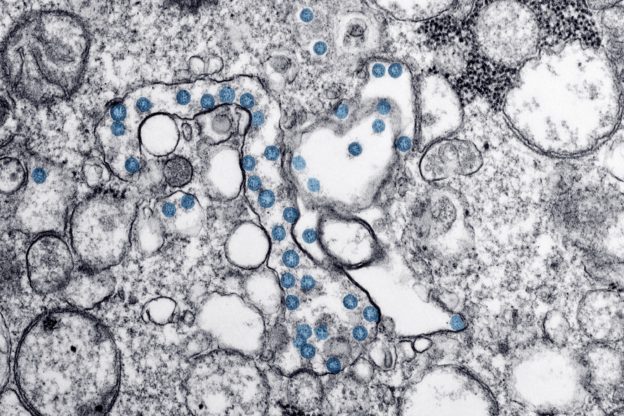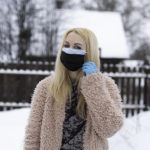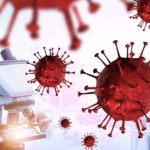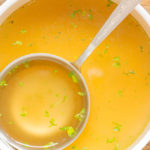By David Blyweiss, M.D., Advanced Natural Wellness
March 25, 2020
The situation is changing rapidly as the world reacts to the coronavirus pandemic.
I don’t use the word ‘pandemic’ to frighten you. Instead, it’s simply a term that means the disease has spread through multiple countries. So by definition, it’s a worldwide pandemic. It’s gone from Asia, to Europe, to North America.
You’ve likely noticed that widespread traveling is becoming less and less likely. Still, there may be situations where you are forced to travel in close quarters with others in the coming weeks.
If that’s the case, there are some simple things you can do to help lessen the chances of becoming sick or passing the virus on to others. We especially want to protect the weak or sick members of our society who are most at risk of severe symptoms.
Transmission is a Key Factor to Understand
MD Exposes the Hidden Danger to Your Eyes

When your eyesight starts to fail, it's a real problem. Suddenly you can't go to the grocery store... you can't get to the doctor if you have an emergency... you can't meet your friends for dinner…
Your "regular" doctor doesn't have time to keep up with the latest research. And the same goes for eye doctors. They go to school to learn how to fit you for glasses and contacts, but have no way of preventing the damage and loss of eyesight that threatens your freedom and independence.
Let me show you something that explains a LOT about how your eyes work.
In my FREE Special Report, I'll show you a HUGE, untapped resource for your eyes that safely and naturally restores clear, effortless eyesight.
Click here to get started...
First off, the coronavirus that is sweeping over the world is like a bad flu for most people. According to the CDC, you may experience a fever, cough, or shortness of breath 2-14 days after exposure to the virus.[1]
For many healthy people this is not going to pose a serious problem. However, for a smaller segment of the population – those with compromised immune systems, the elderly, or the weak – there is a greater risk.
That’s why we are being urged as a whole society to slow the transmission or “flatten the curve” as they say. This way, fewer at risk individuals will become sick all at once so we don’t overwhelm our health care systems.
The most important distinction I can make between the coronavirus disease of 2019 (COVID-19) and influenza has to do with transmission. If someone were to become sick with a flu virus, they would likely feel symptoms within hours.
They’d quickly think, “Oh gosh, I feel terrible” and head off to bed to rest and recover.
In contrast, someone who becomes infected with the coronavirus may not realize they are sick for several days. This means they could be spreading the virus without knowing they have it.
That explains why the government and Centers for Disease Control and Prevention have recommended measures like closing schools, restaurants, gyms, movie theaters and other events where lots of people would all be in the same space.[2]
Even with those measures in place, here are some practical ways you can help protect yourself while traveling in the coming days.
Are You Suffering From...
- Love handles and a pot belly
- Romance that isn't what it used to
- Forgetfulness and inattention
- Low (or no) strength and endurance
- A sex drive that's shifted into neutral...or worse
If so...you may have Mature Male Burnout. Click here to discover more about this unique condition and what you can do about it.
Simple Ways to Protect Yourself From Coronavirus While Traveling
Hand washing: The absolute best thing you can do is wash your hands regularly. Use hot soapy water and sing through the ‘happy birthday’ song twice before finishing. This will help actually break down the virus if it is on your hands.
Hand sanitizer: Handwashing with soap and water is best, but an alcohol based hand sanitizer can also help reduce the spread of infection. I recommend you use one with at least 60% alcohol. But avoid any products containing triclosan as this is a hormone-disrupting chemical. [3] If you need to make a viracidal sanitizer at home; add 4 teaspoonsful of Clorox bleach to a quart of water, or use pure rubbing alcohol or pure hydrogen peroxide to clean your door handles and counters.
Covering your mouth and nose: If you need to cough or sneeze, cover your mouth and nose with a tissue. Your sleeve or the crook of your elbow will also work, but don’t use your bare hands.
Not touching your face: Your eyes, nose and mouth are entry points into your body, so avoid touching your face with unwashed hands.
Keep surfaces clean: Frequently touched surfaces like doorknobs, phones, keyboards, and remotes should be cleaned and disinfected regularly. It’s also a good idea to clean surfaces in your bathroom and kitchen.
Stress reduction: Stay calm! Your body’s immune system actually reacts to chronic levels of stress. So, figure out what will help you stay calm and cool and practice those strategies regularly. Personally, I like to listen to music and practice some mindful breathing.
Sleep: Sleep is very important for your immune system, so be sure to get plenty of sleep in the coming days. Good sleep habits will help. Do things like turn off your screens early in the evening, make sure your bedroom is cook, quiet and dark and set a reminder to help yourself go to bed on time.
Exercise: Regular moderate exercise will help boost your immune system by raising levels of infection-fighting white blood cells and antibodies. [4] Exercise also helps increase circulation and decrease stress hormones. So, get in some solid exercise every single day. At the very least, pick a direction and walk for 15 minutes, then walk back. Besides preventing respiratory infection, exercise can help improve cognitive and physical resilience.
Nutritious foods/diet: Research shows that brightly colored fruits and vegetables can boost immunity. [5] Eat plenty of fruits and vegetables—aim for 10 servings per day. Include fermented vegetables or other probiotic-containing foods.
Sources:
[1] Coronavirus (COVID-19), Centers for Disease Control and Prevention, Accessed 17March2020, https://www.cdc.gov/coronavirus/2019-ncov/index.html
[2] The President’s Coronavirus Guidelines for America, “15 Days to Slow the Spread,” Accessed: 17March2020, https://www.whitehouse.gov/wp-content/uploads/2020/03/03.16.20_coronavirus-guidance_8.5x11_315PM.pdf
[3] Wang, Cai-Feng and Tian, Ying, “Reproductive endocrine-disrupting effects of triclosan: Population exposure, present evidence and potential mechanisms,” Environmental Pollution, Vol 206, Nov 2015, pgs 195-201.
[4] Nieman, David C. “Moderate exercise boosts the immune system.” ACSM’s Health & Fitness Journal 1.5 (1997): 14-19.
[5] Hughes, David A. “Dietary carotenoids and human immune function.” Nutrition 17.10 (2001): 823-827.








Excellent and informative and educational.